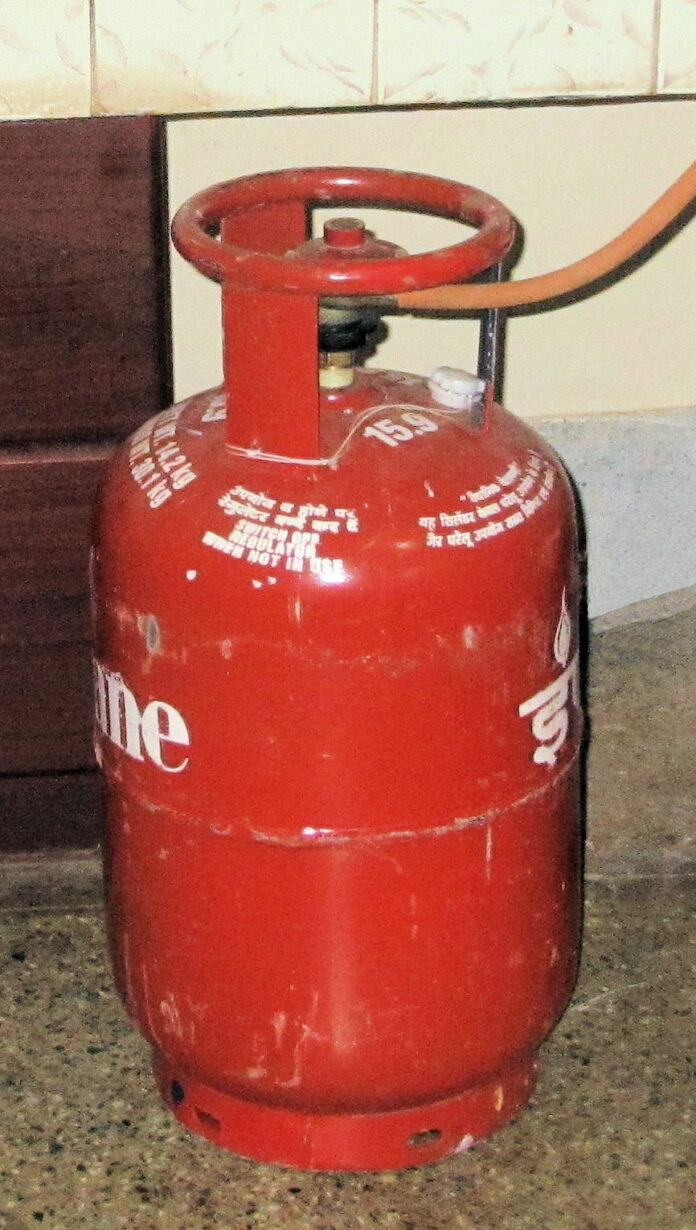By Jeph Ajobaju, Chief Copy Editor
Cooking gas price jumped 33 per cent from N360 per kilogram (kg) in July to N480 [per kg in August, as the cost of lifting and transporting Liquefied Petroleum Gas (LPG) from the ports also rose to pile more pressure on households.
The price had shot up by more than 60 per cent between December 2000 and July 2021 on the back of inadequate gas supply and naira devaluation.
Investigation by Energy Vanguard showed that a 12.5kg cylinder which sold in Lagos for N4,500 in June and July, now sells for N6,000.
In Abuja, the nation’s capital, a 12.5kg cylinder which sold for N4,800 in July has risen to N6,000.
The rising cost rides on the back of Abuja pitching more gas use and declaration of 2021-2030 as Nigeria’s decade of gas, which led the Central Bank of Nigeria (CBN) to set up a N250 billion fund to expand gas use.
The Gas Expansion Programme targets increased use of cooking gas as a cleaner source of energy. But its price keeps rising, from N3,200 per 12.5kg by December 2020 to N4,400 in June 2021 and N6,000 in August.
Obatomi Ajewole, a resident of Agbado, Ogun State told Vanguard that the hikes have also affected the price of a plate of food in restaurants and eating joints.
Reasons for price hike
The Nigerian Association of Liquefied Petroleum Gas Marketers (NALPGAM) attributed the latest price hike to Abuja’s re-imposition of Value Added Tax (VAT) on imported LPG.
NALPGAM Executive Secretary, Bassey Essien, warned in a statement that it may cost N10,000 in the nearest future to refill 12.5kg cylinder of cooking gas.
The government had in 2019 gazetted the removal of VAT on LPG to increase domestic utilisation and Essien said its reintroduction has further raised the price of cooking gas.
“It is unfortunate that the Federal Inland Revenue Service and the Federal Ministry of Finance have gone to resuscitate a product that has been exempted and gazetted from VAT.
“This was gazetted in 2019 and has encouraged domestic gas utilisation. Nigerians are already complaining about the prices of cooking gas across the country, and this would further worsen the situation,” Essien said.
He added that the initial objective of domestic availability will be defeated if cooking gas goes out of the reach of ordinary people, saying over one million metric tonnes were consumed by Nigerians in 2020, with about 60 per cent of it imported.
“We import to augment the 350,000MT allocated to the domestic market by the Nigerian LNG Company Limited.”
Essien insisted that charging VAT on LPG would return Nigerians to era of cooking with kerosene stove and firewood with looming health consequences.
According to him, sale price is based on the price marketers buy the product from depots and terminals.
In early 2020, a 20 metric tonne truck of LPG was sold for N3.4 million, but by December 2020, it had gone up to N5.4 million. It rose to N5.6 million in January 2021 and now sells for N8 million.
“The average cost of a 12.5 kg cylinder of gas sells for about N6,000 and if the situation persist till Dec 2021, a 12.5kg cylinder of gas may sell for N10,000 or more.
“My association has made so many advocacies to draw the attention of the government to address the factors that are responsible for the price surge particularly in line with the declaration of the decade of gas, but we are yet to see any move made by government,” Essien said.
“Rather than do the needful, the government is re-imposing VAT on imported LPG, which has been on exemption and gazetted since 2018. So if importers are made to pay for the VAT element, the associated cost will be passed to consumers.”
Liquefied Petroleum Gas Retailers Branch of NUPENG National Chairman, Chika Umudu, blamed the price hike on high dependence on imported LPG.
“As the dollar is appreciating against the naira, the price of LPG is increasing,” he said.
He suggested that the Nigerian LNG, which accounts for more than 40 per cent of local LPG supply, should supply the domestic market based on demand rather than fixed quantity per annum.
“People in rural areas and semi-urban areas, who are even the major target of LPG expansion, are beginning to dump their cylinders. It is not a good development.”
Vanguard discovered that some restaurants in Lagos have turned to charcoal and firewood because they cannot afford the price of cooking gas.
Below are the analysis and solutions proffered by experts:
Ambrose Omokordion (Investa Chief Research Officer)
“There is a compelling case of economic law at play as in short supply trumping demand, and don’t forget the recent devaluation of the naira.
“Now the price of cooking gas has risen by more than 60 per cent since early December last year on the back of the recent devaluation of the naira and lingering inadequate domestic supply of the fuel.
“Going forward what we need is complete deregulation, and not knee-jerk response.”
Dayo Adeshina (National LPG Expansion Implementation Plan Project Manager)
LPG, which sold at $260 per tonne in January, now costs $650 per tonne on the international market.
While the same pricing index used on the international market applies locally, naira depreciation against the dollar fuels the hike in price.
The government is working on other domestic sources and it is imperative to drive a large volume into the market to ensure competition.
“When a large volume comes into the market, then we can start to see a decrease in price. One of the things we don’t have control over is the pricing index.”
Olufemi Omoyele (economic analyst)
“The federal government should work out a framework with NLNG to meet local demand and equally encourage other multinational companies to supply the domestic market so that we stop talking about importation of LPG.”













